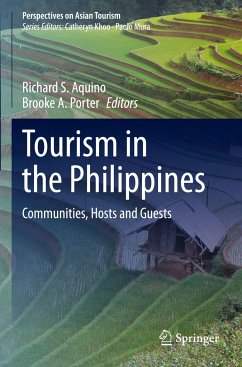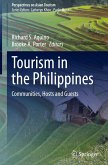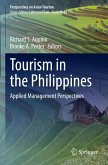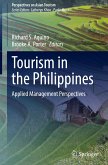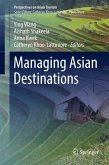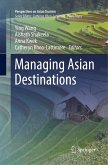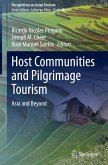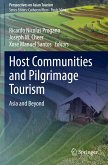This edited volume serves as the second instalment of a two-part title that aims to provide an academic exploration of the contemporary issues and perspectives on tourism in the Philippines. With a strong geographical focus, and drawn from a range of inter/multidisciplinary approaches, this book aims to provide a timely and critical investigation of issues surrounding Philippine host communities, Filipino travellers, and foreign tourists to the country. This book will serve as a platform to engage with mostly Filipino scholars allowing them to present their voices and perspectives on a range of local tourism issues, in support of cultivating a 'culture of research' in the Philippine academia.
This book is one of the first country-focused volumes under the series, Perspectives on Asian Tourism. This book is composed of contributions drawn from the works of Filipino academics based in the Philippines and overseas institutions researching tourism issuesin the Philippines. This book's contributions are drawn from a diverse set of disciplines including, but not limited to sociology, anthropology, mass communications, feminist and gender studies, cultural studies, history, and tourism and hospitality studies.
Comprising chapters based on conceptual and empirical research, this edited book is divided into four parts: first, an introduction to tourism and the Filipino culture and society; second, case studies on the dynamics and impacts of tourism in local communities; third, an investigation of tourists' gaze and experiences of Philippine destinations; and fourth, Filipino researchers' reflexive gaze upon events, festivals, and culinary heritage in a tourism context. This book provides a collection of previously unexplored facets of Philippine tourism, Filipina tourists, and host communities, and could become an essential reading for undergraduate and postgraduate students, researchers, educators and policy-makers in tourism.
This book is one of the first country-focused volumes under the series, Perspectives on Asian Tourism. This book is composed of contributions drawn from the works of Filipino academics based in the Philippines and overseas institutions researching tourism issuesin the Philippines. This book's contributions are drawn from a diverse set of disciplines including, but not limited to sociology, anthropology, mass communications, feminist and gender studies, cultural studies, history, and tourism and hospitality studies.
Comprising chapters based on conceptual and empirical research, this edited book is divided into four parts: first, an introduction to tourism and the Filipino culture and society; second, case studies on the dynamics and impacts of tourism in local communities; third, an investigation of tourists' gaze and experiences of Philippine destinations; and fourth, Filipino researchers' reflexive gaze upon events, festivals, and culinary heritage in a tourism context. This book provides a collection of previously unexplored facets of Philippine tourism, Filipina tourists, and host communities, and could become an essential reading for undergraduate and postgraduate students, researchers, educators and policy-makers in tourism.

